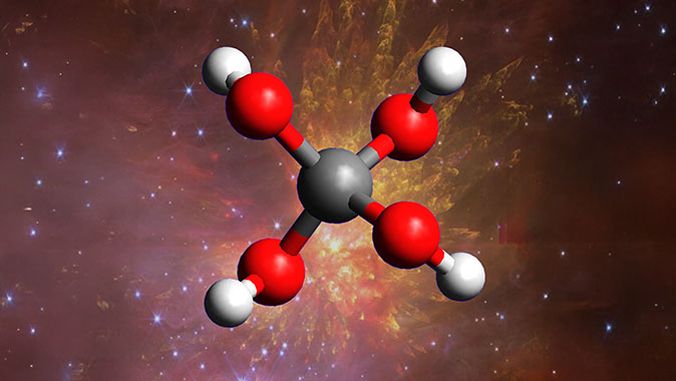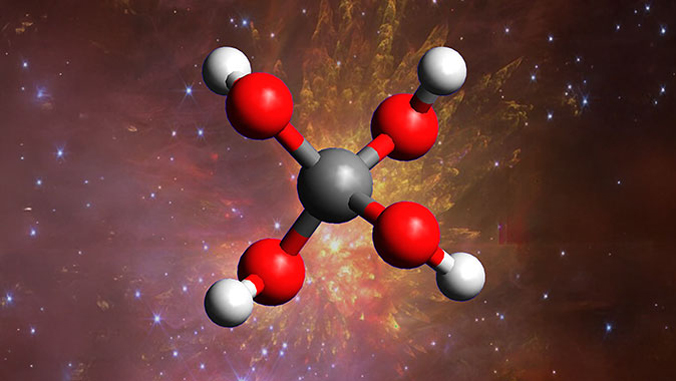
Chemists have synthesized a “super alcohol” previously thought to be too unstable to exist. The molecule was formed under extreme, “space-like” conditions and may shed light on the complex reactions required to form extraterrestrial life.
The super alcohol is called methanetetrol and is the only alcohol with four oxygen and hydrogen groups around a single carbon atom. It is thought to be a key building block for life in the universe. “This work pushes the boundaries of what we know about chemistry in space,” study co-author Ralf Kaiser, a chemist at the University of Hawaii, said in a statement.
Methanetetrol is a type of ortho acid, a class of compounds thought to be critical in the chemistry of early life. However, these compounds are hard to isolate and study. Methanetetrol’s high number of oxygen bonds, for example, make it very unstable and likely to break down if not kept in specific environmental conditions.
Methanetetrol doesn’t occur naturally on Earth, but scientists have theorized about its existence and chemical structure for more than a century, according to the statement.
To emulate how methanetetrol might form in space, the researchers put water and carbon dioxide in a minus 451 degree Fahrenheit (minus 268 degrees Celsius) cryocooler, and then exposed the mixture to cosmic ray-like radiation to trigger the necessary chemical reactions to bring these molecules together.
Using ultraviolet light, the team then detected small amounts of the super alcohol in a gaseous form. They revealed their findings in a study published July 14 in the journal Nature Communications.
Related: Why is alcohol used to preserve things?
This work “pushes experimental and detection capabilities to the ‘final frontier, the next level beyond what could be accomplished before due to the lack of experimental and computational approaches,” Kaiser said in another statement.
“A prebiotic bomb”
Now that they are able to study methanetetrol, astrobiologists can learn how this alcohol is synthesized and reacts with other molecules in the coldest parts of space, such as the dust clouds where stars and planets form.
“You have this compact, carbon-oxygen molecule that just really wants to go ‘boom,'” study co-author Ryan Fortenberry, an astrochemist at the University of Mississippi, said in the statement. “And when it does, when you give it any kind of energy, you’ll have water, hydrogen peroxide and a number of other potential compounds that are important for life.”
Methanetetrol is like “a seed of life molecule,” he explained, that could be a building block of life across the universe. “It’s something that can lead to more complex chemistry if given the opportunity.”
Fortenberry likened the alcohol to an acorn, which can’t grow into a tree on its own, but requires the right conditions and reactions to do so. “It’s like a prebiotic bomb,” he said.
The chemists concluded that, because it can form in the space-like conditions of a lab, methanetetrol can also form in space. “If we can find places where methanetetrol forms naturally, we know that it is a place that has the potential building blocks to support life,” Fortenberry said.
